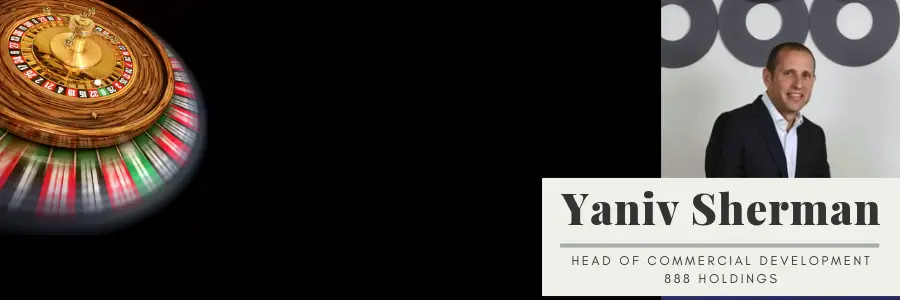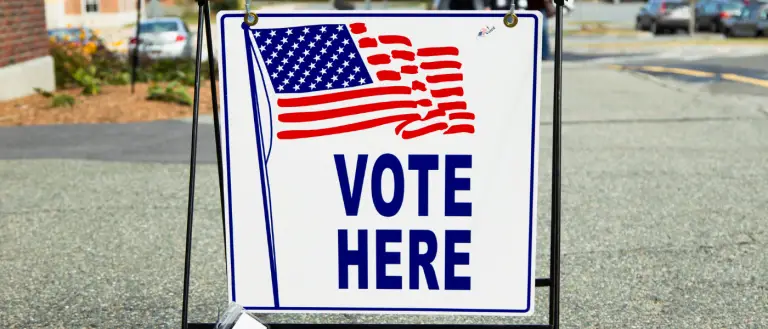Exclusive: 888’s Yaniv Sherman Discusses US Online Gambling Strategy

Since the fall of PASPA, the number of opportunities for legal US online gambling operators has increased, and so has the level of competition.
The new post-PASPA reality isn’t phasing 888 Holdings.
888 is a trailblazer in the legal US online gambling space, having been heavily involved in legal US online gaming since 2013.
The company has been busy of late, recently unveiling its new and improved Orbit online casino platform to players at New Jersey online casinos, and prepping for its much anticipated Pennsylvania launch.
To get a better handle on Orbit and 888’s US strategy, BettingUSA.com spoke with Yaniv Sherman, the head of commercial development for 888 Holdings.
Orbit, a Product For the Modern Online Casino Customer
Orbit provides what 888 is, for lack of a better term, calling a Netflix experience.
According to Sherman, Orbit is a slick, intuitive interface that boasts a more contemporary look and feel for the modern swipe-based world. The platform also contains robust marketing capabilities, including real-time propositions.
Sherman went on to say that Orbit helps solve one of the biggest challenges the industry faces: managing the breadth of content.
“We’ve actually scaled back and optimized our offerings,” said Sherman. “If you have hundreds of games, it’s just a lockdown experience, but you do want to make sure that you’ve got everything in there.”
But there’s more to managing content than paring down games. Sherman explained that the next level is figuring out how to deliver the relevant content to each user. And that’s where Orbit’s intuitive interface and back-of-the-house functionality comes in.
Because of its intuitive design, the platform can match players to games, with an assist from the platform’s back-of-the-house AI features. One of those features is the soon to be launched recommendation engine that is already available in Europe.
According to Sherman, the results in Europe have been positive.
“We’re seeing player engagement and session time growing,” Sherman told BettingUSA.
Sherman went on to say:
“We’re not just putting the next slot in front of them. We’re serving relevant content, content that other users have played.
“It may not be a direct linkage, but hypothetically speaking, it’s just a more entertaining experience for the player.”
888’s US Strategy: Use a Scalpel Instead Of a Machete
When it comes to market access, 888 is taking the quality over quantity approach. According to Sherman, 888 is selectively targeting markets with substantial upside, and avoiding markets with high barriers of entry and dampeners.
Sherman agreed that the pace of legislation is so fast that market access is critical in the US, but noted 888 is taking a slightly different approach:
“We’ve seen a lot of deals out there that are sort of giving almost instant access across many markets, but we feel some of these deals are very expensive.
“And most importantly, not all of the States that legalize are commercially viable in the near term or even mid-term.
“We’re trying to find the ideal combination of size and a more commercially viable structure.”
He also highlighted digital as a critical part of 888’s strategy.
As Sherman notes, “Some of the states that legalized are retail-only, and some of them have an in-person registration component, like Iowa, or the 18-month in-person registration window in Illinois.”
Those policies are likely to hamper growth until statewide mobile registration is available.
As such, 888 is looking at additional states, but it’s doing so in a selective way that balances access with the viability of the market.
“At the last capital markets day we dubbed [the strategy] smart and selective,” Sherman said.
“The current state of mind in the US is it’s all about scale, a race to market share,” Sherman continued. “We’re trying to keep our powder dry. This is a marathon, and we want to make sure we impact the States we operate in, rather than just sticking a flag in the ground.”
Still, Sherman confidently said 888, who is active in three states today, is looking to deploy in new states over the next 12-18 months.
Contrary to Popular Opinion, Online Poker Is Alive and Well
Despite the cloud of uncertainty created by the Department of Justice’s re-re-interpretation of the Wire Act, Sherman deemed online poker, “very much still alive and kicking in America.”
“I think that, that the opinion created what it was supposed to create for the people who propagated it, a lot of confusion,” Sherman said of the DOJ opinion. “Having said that, we just came out of the most successful interstate tournament at WSOP. com, we’ve seen great results.”
Sherman went on to say that the decision (currently playing out in the courts) has caused concern in some states.
He also noted 888 is working with regulators in those states to come up with solutions that would address any concerns about the DOJ opinion, until a final solution is proffered, either through the courts or via legislation.
When asked about Pennsylvania specifically, Sherman would only say that there is an open dialogue with the PGCB.
Online Poker, Sports and Cross-Selling
888 also has a different point of view when it comes to how online poker fits into the larger online gambling landscape in the US.
According to Sherman, beyond direct revenue, online poker provides cross-sell opportunities. 888 believes there’s a lot of value in being a “triple-threat” operator – poker, casino, and sports betting.
“We’ve seen cross-sell from poker to casino. That’s the main cross-sell channel we see,” Sherman said.
Sherman did caveat that statement. “The magic isn’t just cross-selling; it’s the way you cross-sell,” he said. “Poker players are poker players, so we want to approach that in a certain way, and that’s the way our system is built.”
To that end, 888 has engaged with legislators and policymakers to help them understand why a sports betting-only approach isn’t the best approach.
“We’ve told states they should consider all forms of gaming, because at the end of the day if you want to get to an optimal situation and collect tax revenues and offer entertainment, you want to have more games,” Sherman said. “A single product state will forever be limited to what it can offer its players.”







